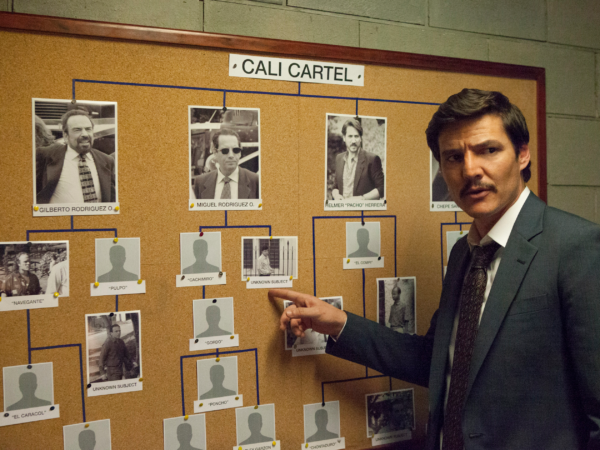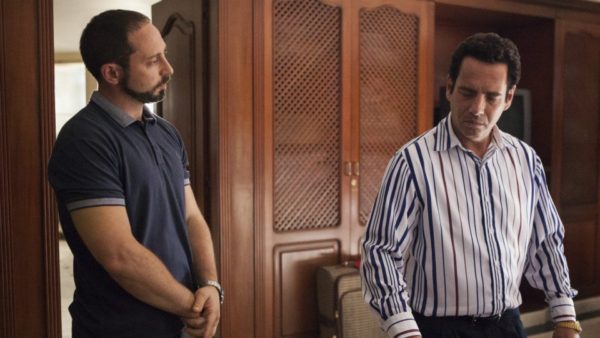The third season of Narcos, the taut crime thriller from Netflix, draws a viewer into its vortex of intrigue, skullduggery and violence.
It’s set in Colombia, a South American country where drug cartels loom large and where corruption at the highest levels of government and law enforcement is an endemic and recurring problem.
During the first two seasons, Narcos focused on Pablo Escobar, the notorious drug trafficker from Medellin. Escobar, an astute businessman with killer instincts, coopted politicians and police forces in building an empire based on the sale of cocaine to the United States. The U.S. Drug Enforcement Agency sent agents to Colombia to staunch the flow. The battle it waged against Escobar and his cronies in cooperation with the Colombian authorities was hard and long, but they finally cornered him and demolished his cartel.
With Escobar dead and buried, the DEA set its sights on the rival Cali cartel, headed by the wily Rodriguez brothers, Gilberto and Miguel, who acquired a virtual monopoly on the cocaine market, not only in the United States but in Europe and Asia as well. To keep their enormously profitable operation running smoothly, they lined the pockets of corrupt officials, spending about $1 billion annually to retain their silence and loyalty.
Unlike Escobar, Gilberto and Miguel eschewed violence, though it was sometimes necessary. Their preferred method was soft power — persuasion backed by the heft of American dollar bills. But even they knew that the status quo was ultimately unsustainable. Which is why they began to buy legitimate businesses while gradually phasing out their illegal activities.
As season three begins, Gilberto (Damian Alcazar) and his younger brother, Miguel (Francisco Denis), are in the process of making that transition. They’ve reached an apparent understanding with the Colombian government that this phase will take six months. In Gilberto’s mind, they’re free to carry on as usual and sell drugs to their network of buyers, including a notorious dealer in Mexico known as the Lord of the Skies.
The brothers’ chief associates are Pacho (Alberto Ammann), a volatile young man who’s openly gay, and Chepe (Pepe Rapazote), a sinister-looking gangster with a hair-trigger temper who’s based in New York City. The chief accountant, Pallomari (Javier Camara), keeps the ledgers in good order.

The DEA’s lead agent in Colombia, Javier Pena (Pedro Pascal), who appeared in the first two episodes, works in close coordination with the U.S. embassy in Bogota. A dogged investigator and workaholic, he’s in hot pursuit of Franklin Jurado (Miguel Angel), a savvy money launderer who works for the Rodriquez brothers. Once the Jurado file is closed, Pena will go after the godfathers of the Cali cartel.
One of the most interesting characters in Narcos is Jorge Salcedo (Matias Varela), the cartel’s head of security. A soft-spoken engineer whose job is to wiretap phones, he’s a technocrat rather than a common thug. In line with his bosses’ plans, Salcedo intends to leave the cartel so that he can start his own company. But when Miguel asks him to stay longer than he anticipated, Jorge’s attitude toward the cartel sours. He undergoes a life-changing metamorphosis that has staggering implications. Meanwhile, the Rodriquez brothers run into unexpected trouble, forcing them to reassess their long-range objectives and deal with the rivals who want to undercut them.

Narcos, which unfolds in Spanish and English, starts slowly, in lumbering fashion, but gains rapid momentum after the third of 10 episodes. The production values are superior, the cast is first-rate and the musical score is languidly mesmerizing. Its authenticity is enhanced by the fact that it was filmed entirely in Colombia.